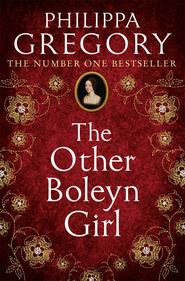По всем вопросам обращайтесь на: info@litportal.ru
(©) 2003-2025.
✖
Bread and Chocolate
Настройки чтения
Размер шрифта
Высота строк
Поля
It was the Lady Ygraine, her head held high like a bride, as pale as a ghost; but smiling a little private smile, as if she were walking to meet her lover. Her hair was gathered under her tall hat, the silk veil streamed out behind her. Her gown was pale green, a colour like birch leaves in springtime. And over her gown she wore David St Pierre’s surcoat; with the mud on the back where he had fallen, and the bloodstain very crimson on the front. She walked quietly to the ladies’ table and took her place, her eyes cast down as a modest maiden should sit.
‘Ygraine!’ her mother hissed urgently. ‘What the devil are you doing, girl!’
And the Lady Ygraine, grown at last from the little girl whom David St Pierre had loved, met her mother’s appalled face with a smile as clear as birdsong on a summer morning. ‘I am wearing my lord’s favour as he would wish,’ she said. ‘For he carried me in his heart, even on the very day of his death.’
Theories About Men (#ulink_7de44fec-854b-55af-bcb9-59f36454e926)
When Stephanie was only thirty years old, and married only five years, she evolved her own theories about men. She believed that men are unfaithful to their wives not from passion, but from an innate vagueness that they can no more help than the month of November can help being wintry. Husbands simply forget that they are married and monogamous. She had a theory that wives always lose on divorce: a smaller house, less than half the income, and a scarcity of attractive men. She had a theory that marriages are never ended by the single fact of infidelity, but by the long corrosive negotiations after the discovery. And she had a theory that if a clever woman discovered her husband had strayed, she might be able to get him back by confidently acting as if the whole affair had never taken place. Her theory was that men are creatures of habit, and that the habit of coming home to the same comfortable house every night is stronger than the appeal of running around. Especially after the novelty has worn off.
When she was forty-one, and sixteen years married, she had the doubtful pleasure of putting her theories to the test.
Her husband Jeff was an estate agent, a partner in his father’s profitable company. On their marriage his father had given them the deposit money for a large house set in a spacious garden in Kent. It was the house that Stephanie had wanted all her life: a Victorian residence with a wide double door and a generous sweep of stairs. Stephanie, who had been brought up in the poorer parts of Rye, had looked at houses like that and always longed for their style, and their implied stability. It was her desire to be in houses like that, if only as a visitor, that had drawn her into the estate agency business, first as a secretary, and then as a junior agent. It was her desire to own a house like that which had prompted her to fall in love with Jeff.
They married, and were given their house, and Stephanie left her job. It was thought undignified to have the daughter-in-law of the director trekking around from one little house to another, and haggling for her share of the commission. Instead, Stephanie took a cordon bleu cook’s course, read with careful attention books on interior design and home-making, and devoted herself to the comfort and convenience of her husband. She cooked breakfast and dinner for him every day of his life, she maintained the house, she drove for him, she acted as his secretary, she kept the books of the company and typed confidential documents. She gardened, she remembered his parents’ birthdays and anniversaries, she returned rented videos on time, she paid the bills before they were red, she never overdrew on her housekeeping account. In short she was a highly skilled professional wife and she regarded her unceasing work as a fair return for the house she had always wanted.
When she fell out of love with Jeff, which happened quite soon, she was careful to conceal the change in her feelings; since she never fell out of love with the house.
In summer she always served dinner for the two of them in the conservatory. One evening in July it was warm enough to open the doors to the warm, sweet-smelling twilight. She had chilled two bottles of rather good white wine and Jeff was drinking heavily. As Stephanie rose to clear the pudding dishes he suddenly said: ‘Leave that. I have to talk to you about something.’
At the sound of his troubled voice her first thought was of bankruptcy. These were difficult times for all business, two friends had husbands out of work and – much worse – had been forced to sell their lovely houses, and put the large solid furniture into store. She worked on the company account books every week and they all seemed well; but Stephanie’s first fear would always be the loss of her home.
‘I don’t know how to tell you,’ he said. ‘I don’t know where to begin. You must have noticed that I’m different!’ He looked at her hopefully and she thought at once that he was ill and that she had failed him by not noticing symptoms. Her father-in-law would blame her, and she would feel that the investment made in her – the garden, the precious house – had been fraudulently obtained. Guiltily she sank back into her seat and shook her head.
‘How can I tell you?’ He drew a breath. ‘I’ve been seeing someone,’ he said. ‘Oh God. Seeing someone. It’s been a year now. I’ve hated lying. I love her. I have to live with her.’
He broke off, looking at Stephanie for some kind of response. She could feel her face freezing into stillness.
‘We’ve tried,’ Jeff said.
Stephanie mutely registered that this ‘we’ was a new one. It no longer meant her and Jeff. It now meant Jeff and this woman.
‘What’s her name?’ she asked.
He looked at her suspiciously, as if she were taking evidence against him. ‘Elizabeth,’ he said. ‘We tried not to see each other. We tried to stop. It’s hopeless. I cannot live without her.’
Stephanie saw the gleam of pride on his face before he dropped his head into his hands.
‘You are in love,’ she observed.
His head was up in a moment. ‘I knew you would understand,’ he said. ‘It’s never been like this for me before. I can’t help myself. I have to be with her. I’ve been in hell these last three months. You must have seen it.’
Stephanie thought of the last three months. June had been wonderful for roses in the garden, every Saturday they had given little summer dinner parties with iced fruit puddings, and there had been fresh roses in every room in the house. May had been disappointingly wet. Her father-in-law had wanted some confidential reports typed, and she had spent days with the rain streaming down the windows, in the cold spare bedroom, tactfully amending his sadly inaccurate spelling. She had lifted all the tulip bulbs in April and it had taken nearly a week to dig and store them all. Of Jeff’s anguish she had no recollection at all.
‘I don’t remember,’ she said honestly.
Jeff looked a little aggrieved. ‘I’ve been dreading telling you. But I’ll take care of you, of course. I’ll get you a nice place in town, a smaller house would be less work and you could get a job again. Maybe a flat, and then you’d not have to bother with a garden at all. How many bulbs did you plant last autumn? It was practically a full-time job. Elizabeth says –’ He broke off, remembering just in time that Elizabeth’s detailed analyses of his wife had better not be repeated.
Stephanie blinked. She very badly wanted to take the pudding dishes to the dishwasher before the cream dried on them.
‘But I like living here,’ she said. Even to her own ears she sounded defeated. ‘I like living here with you,’ she added hoping for a more personal note.
He shook his head with a new certainty – these were Elizabeth’s certainties. ‘I’m not the man for you. I know it now. You need someone who’s more like you: a home-lover. Not a wheeler-dealer, running around every day like me. You’re wasted on me, I can see that now.’
Stephanie absorbed another of Elizabeth’s considered opinions in silence. Until now she had thought her husband was a rather dull copy of his father. It had been Jeffrey Davidson Senior who had built the company, who had put it at the top in the small market town, who told his son what to do. But apparently – in Elizabeth’s version – Jeff was some kind of financial wizard, and she was a slow housewife, holding him back.
‘I see.’ She was remembering, and it was scant comfort, that she had always believed that male fidelity was an act of convenience, not of conviction. Now it seemed that it was more convenient for Jeff to leave his wife than stay with her.
‘What shall we do?’ she asked. She could hear panic rising in her voice. ‘What does your father say?’
‘He likes Elizabeth. He thinks she’s a real go-getter.’
Stephanie nodded at this description – an unfortunate one since Elizabeth had gone and got Stephanie’s husband. But if Jeff’s father was giving the affair his blessing then Stephanie was in real danger.
‘What work does she do?’
‘She’s a personnel consultant. She came to do the sackings at the office last year.’
‘And what do you plan?’
‘I’ve had a word with our lawyer and he’ll represent you in an amicable settlement. I’ll give you a new house outright, and an allowance, a generous allowance. You won’t lose out.’
Stephanie looked out across her garden. In the darkening trees the blackbirds were calling, settling for the night. A single thrush, high in the copper beech tree was singing, a long warbling call, its breast gilded by the last rays of the sun. Later there would be little bats swooping low through the soft dusk, and owls calling. She could smell the roses she had planted sixteen years ago, their scent lying heavily on the still evening air. ‘And you will live here with Elizabeth?’
‘She’s seen the house. She likes it very much. She says she can really make something out of it.’
‘Will you excuse me for a moment?’ Stephanie asked. She cleared the pudding plates into the dishwasher, switched it on, and then went up the stairs to their bedroom. She sat before the kidney-shaped dressing table and adjusted the wings of the mirror so that she could see her profile on each side, a dozen versions of her shrinking into infinity.
She could imagine the house that Jeff and his father would think suitable for an estranged wife. It would be a small terraced house in a quiet street near the town centre so that she did not need a car. It might be a two-bedroomed flat in an anonymous block near, but not on, the seafront. It would not be a turn of the century family home in mature wooded gardens.
‘No,’ she said softly. She took up her hairbrush and gently brushed her bobbed hair. ‘Not in a million years,’ she said firmly.
She rose from the table and glanced around the room. In the evening sunlight the room glowed in rose and gold. The wallpaper matched the curtains, which echoed the colours of the carpet. The whole room, indeed the whole house, had that attractive English country look which appears so delightfully easy and yet is so hard to achieve, and time-consuming to maintain.
Stephanie went downstairs again. Jeff had poured himself a large brandy as if in celebration, and was still seated at the table.
‘You must do whatever you wish,’ she said.
‘I thought I’d stay with Elizabeth until you move out.’
She nodded. ‘You’ll want me to pack for you, then.’
‘I’ll pack,’ Jeff said awkwardly. It would be the first time in sixteen years that he had packed his own bag.
Stephanie nodded and let him go upstairs into their bedroom. She heard him opening and closing cupboard doors, looking for the suitcases. She wiped down the kitchen worktops and then laid the table for breakfast, with a white tablecloth and white napkins. She laid two places, she thought it looked more poignant. Then she wentupthe stairs and found Jeff thrusting ironed shirts into his suitcase.
‘I’ll do that,’ she offered.
Automatically, he stepped back, but then he hesitated. ‘You shouldn’t,’ he said, embarrassed.












